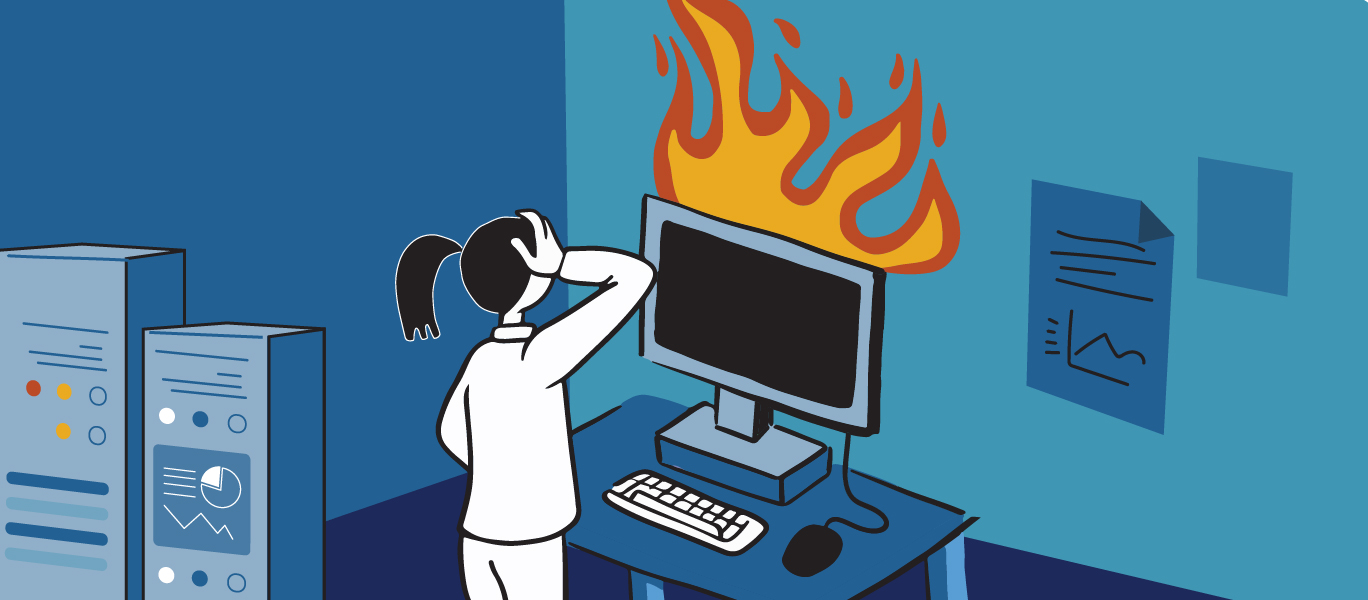
Cyber threats, critical outages, and natural disasters pose massive risks to your clients’ data. As an MSP, it’s your responsibility to protect your clients against these threats.
In this article, you will learn:
A stable and secure working environment is one where you don’t have to worry about the loss of data, but when disaster strikes will your data backup solution hold up to the pressure?
With the threat of man-made or natural disasters, data risks are not uncommon for any organization. Data Backups are your form of insurance, a safe snapshot of a healthy data environment to roll back to in case of an emergency.
How your organization responds to these high risk scenarios can often make the difference between a smooth restore or huge losses that can set you and your client back months. If disaster strikes with no backup safety plan, it’s likely your MSP could lose the client and suffer damage to your professional reputation.
An organization’s backup and disaster recovery plan can often be a difference maker by outlining risk reduction measures. Automated monitoring of backups can be a key part of that plan as you can see the health of your backups without spending the time to check in.
Is your MSP still monitoring backups manually or have you established an automated monitoring process through Backup Radar?
Consider how your MSP’s data backup strategy would address these potential disasters.
Malware is a serious threat to both your MSP and clients. If infected, malware can render equipment unusable or, in the case of ransomware, lock and encrypt your data and force you to pay a ransom to get it back.
Addressing malicious attacks like this is a multi-faceted process that involves proactive steps on every level of your organization. Use endpoint protection for employee desktops, laptops, and phones, as well as employee cybersecurity training to avoid malicious attacks.
Increasing how often data backups are saved is beneficial too. In case of an emergency your data can be restored into a near perfect state with minimal downtime for you or your clients.
With more frequent backups, you can monitor their status through Backup Radar to detect any changes and address them in real-time. You don’t have to wait for the problem to develop when you can catch any issues early.
No matter how secure your data backups might be, the risk of a weather event like a flood or hurricane, or a fire, can be a massive threat. Your backups won’t be able to help you if they’re underwater.
In these situations, MSPs are encouraged to have multiple secure backups, including a cloud storage solution. Traditionally, a secure backup and disaster recovery plan has been a hybrid approach of on-premises and off-site copies.
Having three backups, the original, a copy on a different format, and an off-site copy, is known as the “3-2-1” approach. This strategy is one of the most commonly encouraged ways to maintain data backups, providing organizations multiple options when you need to recover data.
Make sure to test data recovery from the cloud backups to ensure that your team is familiar with the recovery process.
In the case of extreme weather like flooding, cloud-based backups give you an extra layer of security in case any on-premises backups are damaged or lost. Cloud-based backups are also known for faster recovery times, enhanced security, and cost savings due to consistent rates from providers.
Other measures of security are also offered through backup providers like storing data in multiple data centers, having generators or a stable power source, multiple high speed connections, and even physical protections such as alarms, gates, and locks.
Keeping your devices on the latest updates and patches will allow your MSP to stay current with security measures. Prevent outdated system files and firmware from causing unnecessary hardware problems.
In the case of hardware or power failure, cloud-based backups remain a fantastic option to provide security for your data. When an electrical surge or other hardware issue causes irreparable damage, your cloud-based backup can be a life saving resource, allowing your company to restore data quickly with minimal downtime and business impact.
Whether you’re trying to prevent data loss or are responding to an emergency, Backup Radar helps give MSPs oversight of their entire backup environment in one tool. Local, cloud, or hybrid model, Backup Radar will monitor and provide actionable reports based on the health and status of your current backups.
Backup Radar automates the monitoring process, allowing MSPs to scale up their business without spending time on manually monitoring their clients’ environment.
Get an inside look at how Backup Radar can make your MSP better than ever. Request a demo today.